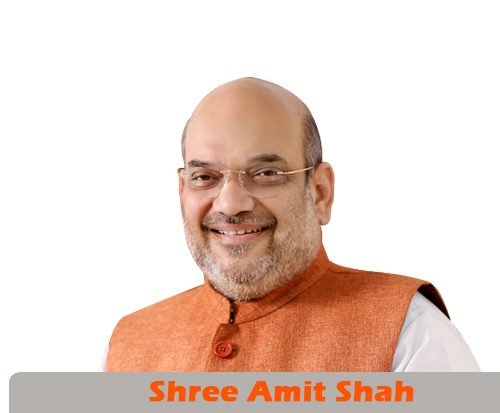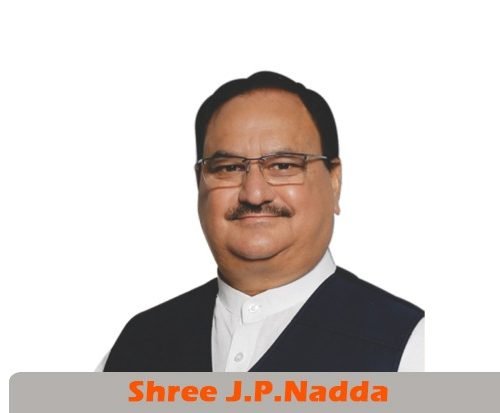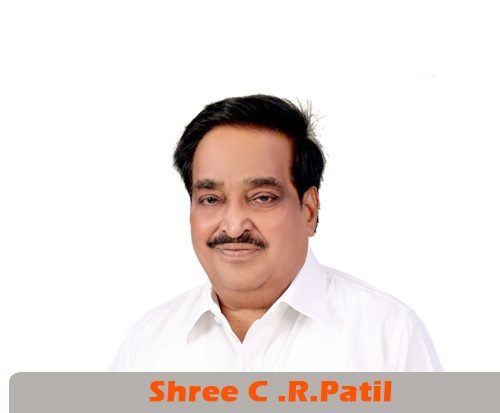


About
Bharatiya Janata Party
BJP
The Bharatiya Janata Party (BJP) a direct successor of erstwhile Bharatiya Jana Sangh (BJS) founded in 1980, is a major political party of India The Bharatiya Jana Sangh was founded in 1951 by Shyama Prasad Mookerjee, a nationalist leader, former Union Minister and freedom-fighter. The party advocates welfare social policies, self-reliance, robust economic growth, foreign policy driven by a nationalist agenda, and strong national defence. The BJP is pledged to build up India as a strong and prosperous nation, which is modern, progressive and enlightened in outlook and which proudly draws inspiration from India’s ancient culture and values and thus is able to emerge as a great world power playing an effective role in the comity of Nations for the establishment of world peace and a just international order. The Party aims at establishing a democratic state which guarantees to all citizens irrespective of caste, creed or sex, political, social and economic justice, equality of opportunity and liberty of faith and expression. The Party shall bear true faith and allegiance to the Constitution of India as by law established and to the principles of socialism, secularism and democracy and would uphold the sovereignty, unity and integrity of India. The BJP stands for strong national defense, small government and free-market economic policies. Integral humanism has been its core philosophy and identity ever since its inception.
History of
Bharatiya Janata Party
BJP
Bharatiya Janata Party is today the most prominent member of the family of organizations known as the “Sangh Parivar”. And RSS has always been dubbed “communal”, “reactionary” and what not by its detractors. Sanghs of swayamsevaks have of course always shaken off that criticism like so much water off a duck’s back. They have never had any doubt that the organization is wedded to national unity, national integrity, national identity and national strength through individual character and national character. And today this organization is poised for a great leap forward. Even its long- time detractors think and say that now BJP is “unstoppable”. What is the story of this national epic?
History is the philosophy of nations. And the Sangh Parivar has a very clear and candid conception of Indian history. Here was a great civilization whose glory spread from Sri Lanka to Java and Japan and from Tibet and Mangolia to China and Siberia. While it weathered the storms of Huns and Shakas and Greeks it wilted before the Islamic storms of the Turks. However, a 1000-year resistance saw this country bloodied but unbowed. Its civilization survived through the heroic efforts of the Vijayanagar Empire and of Shivaji, Rana Pratap and Guru Govind Singh and countless heroes and martyrs. In more recent times this torch was picked up by Swami Dayanand and Swami Vivekanada. And in the present century the good work has been carried on by Sri Aurobindo, Lokmanya Tilak, Mahatma Gandhi and others. The RSS, founded by Dr Hedgewar in 1925 and consolidated by Shri Guruji after 1940, is the heir to this heroic, historic heritage. It has nothing against Muslim Indians – as distinguished from Muslim invaders. Its position on this issue has all along been: “Justice for all and appeasement of none”. But it has no doubt that we were and are a Hindu nation; that change of faith cannot mean change of nationality.
The Rashtriya Swayamsevak Sangh
The RSS entirely agrees with Gandhiji’s formulations that “There is in Hinduism room enough for Jesus, as there is for Mohammed, Zoroster and Moses” and that “majority of the Muslims of India are converts to that faith from Hinduism through force of circumstances. They are still Hindu in many essential ways and, in a free, prosperous, progressive India, they would find it the most natural thing in the world to revert to their ancient faith and ways of life.” Due to the British policy of “Divide and Rule” and the politicians’ proclivity to compromise and temporize the country suffered the trauma of the partition. But the Sangh Parivar has no doubt that before very long the unities, the varieties and the strengths of our ancient civilization will prevail. RSS has been continuing the task of nation building since its inception. It did it through the tumultuous period of 1930s and 40s. But it was rudely shaken by Gandhiji’s killing and the Government’s political exploitation of that national tragedy. The RSS, along with millions of people, did not approve of Gandhiji’s Muslim appeasement policy – starting with support of the Khilafat movement – but it had the greatest respect for the Mahatma. Indeed, Gandhiji had visited the RSS winter camp in Wardha in December 1934 – and addressed the Delhi RSS workers in Bhangi colony, in September 1947. He had deeply appreciated the “noble sentiments” and “astonishing discipline” of the RSS. He had never spoken even one word of criticism of the RSS. But after his killing, 17000 RSS workers – including Shri Guruji – were accused of “conspiracy of murder” the Mahatma Gandhi and the RSS workers offered Satyagraha. But during all this time not one MLA or MP raised the issue in any legislature. For the RSS, it was the moment of truth. And this truth, as enunciated by Gokhale, was that “What cuts deep in politics cuts deep all round” and that unless the RSS grew political teeth and wings, it would always be at the mercy of unscrupulous politicians. This was the context in which Shri Guruji blessed the birth of Bhartiya Jana Sangh under the leadership of Dr. Shyama Prasad Mookerjee in 1951. And in the very first General Elections the BJS emerged as one of the four nationally recognized parties. The Party has never looked back since then.
THE FIRST DECADE
The first decade was a period of steady growth organizationally and policy evolution and elaboration ideologically. It took up the issues of territorial integrity like Kashmir, Kutch and Berubari – and in the process suffered the martyrdom of its founder-President Dr Mookerjee in a Kashmir jail. It demanded cow protection as per Article 48 of the Constitution and Gandhiji’s declaration that “Cow protection is more important than even Swarajya”. It came out against Zamindari and Jagirdari. It criticised permit- license-quota Raj. And it came out for the nuclear option to reinforce national defense. The 1962 China war and 1965 Pakistan war put Sangh Parivar on the center-stage as the conscience of the country. When the RSS Parivar was entrusted with police duties in 1965, and it performed the same to the satisfaction of all-even Muslims began to join Jana Sangh. Shri Guruji was specially invited to the National Integration Council. General Kulwant Singh said at the time: “Punjab is the sword arm of India and RSS is the sword arm of Punjab.”
In all countries, parties associated with the freedom movement enjoy long years of power. So did the Congress – for 20 years. But the 1967 elections ended the Congress monopoly of power. From Punjab to Bengal there were non-Congress coalitions everywhere. As a political wit put it: “You could travel from Amritsar to Calcutta without setting foot in Congress territory.”
In most of the States Jana Sangh and the Communists worked together. They seemed to be guided by the dictum: “We are all children of Bharat mata and we are all products of the 20th century.” However, this was more than the monopolistic Congress could stand. It used its vast money power and its capacity for intrigue to topple government after state government.
Connect with Leaders






